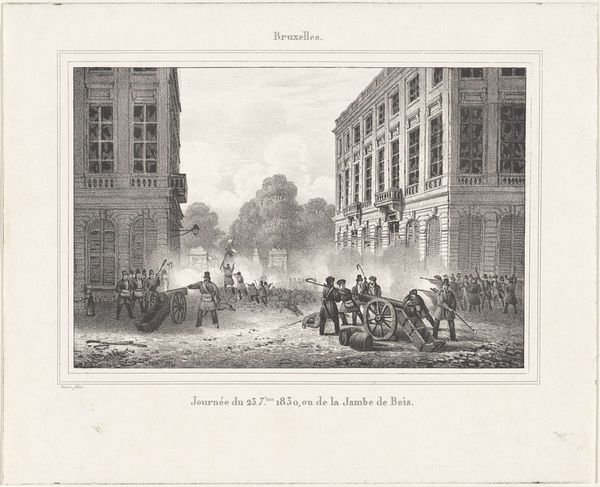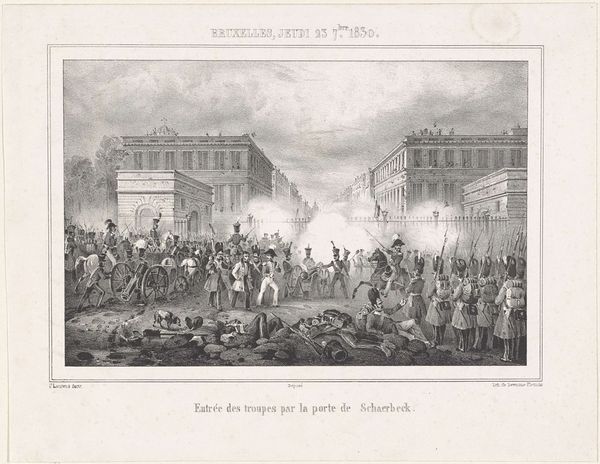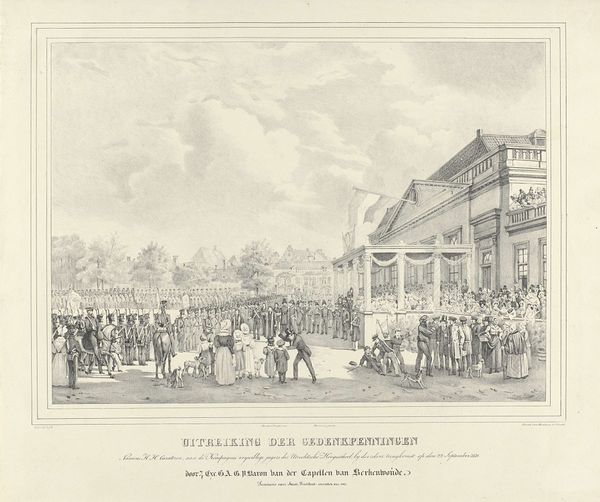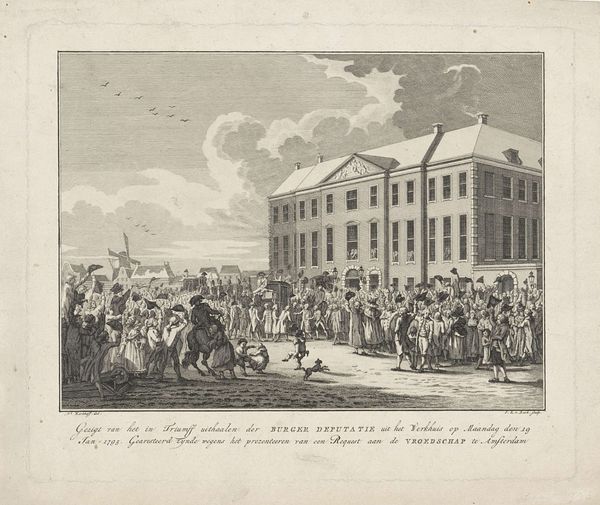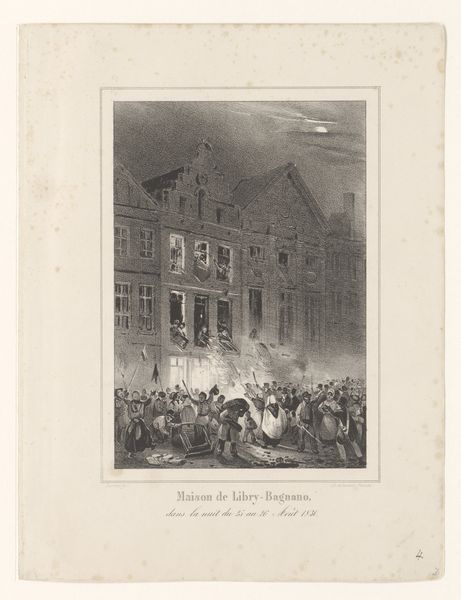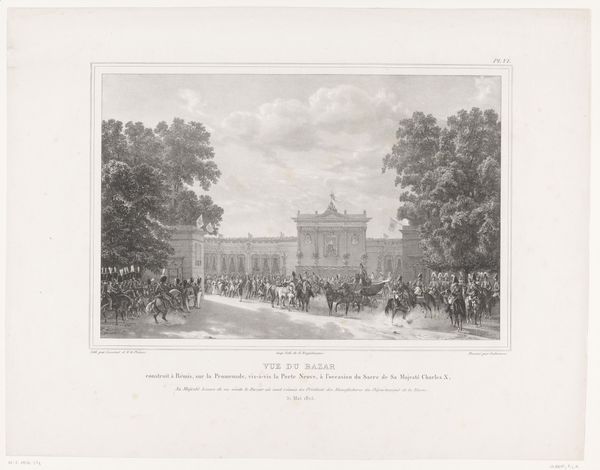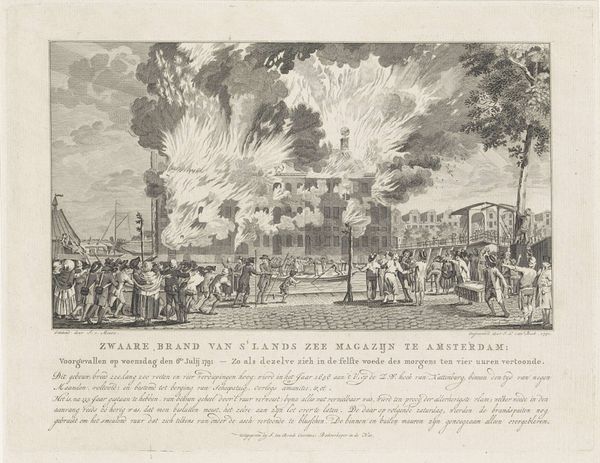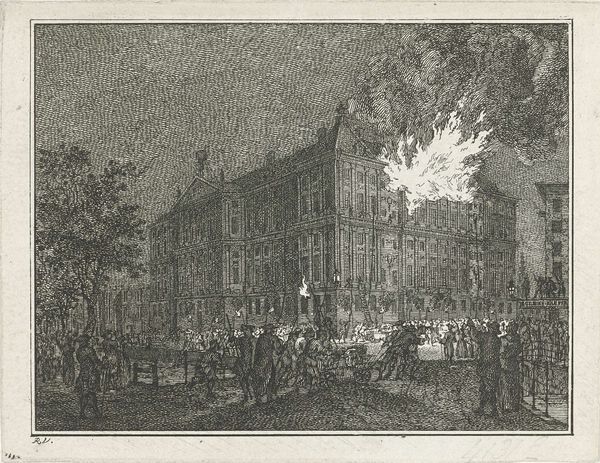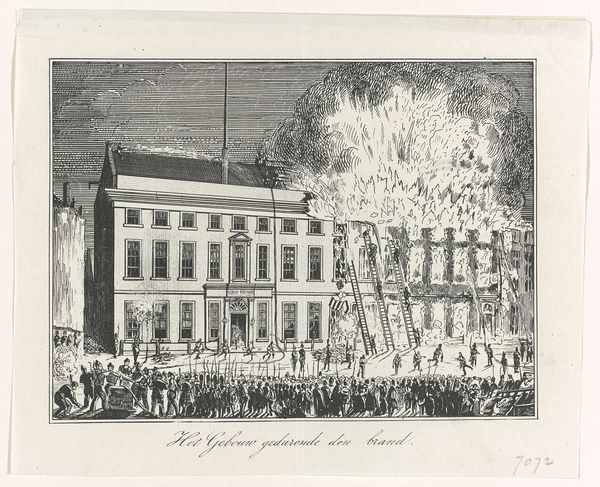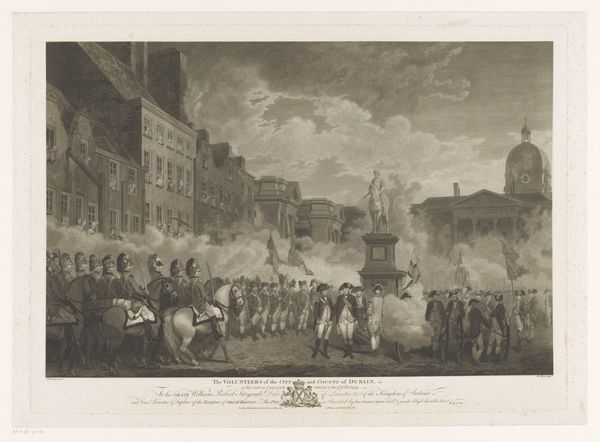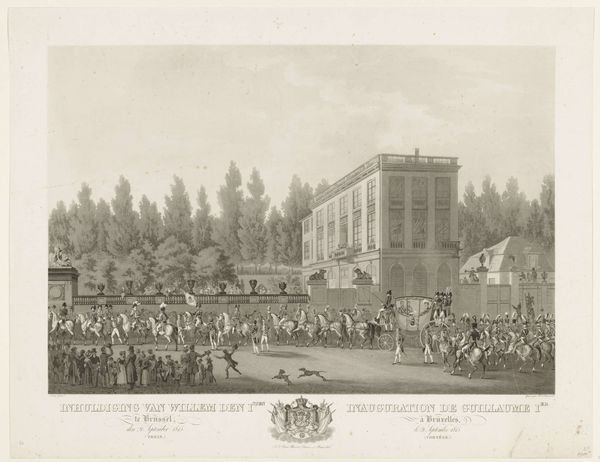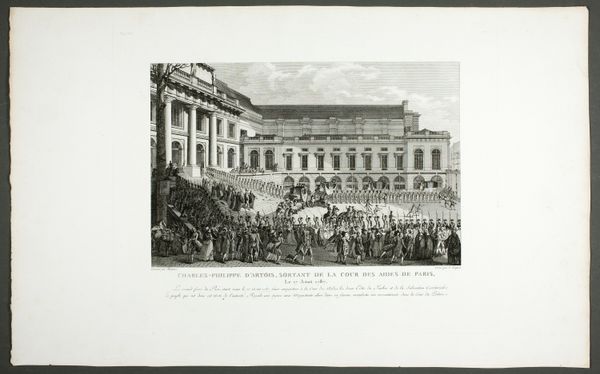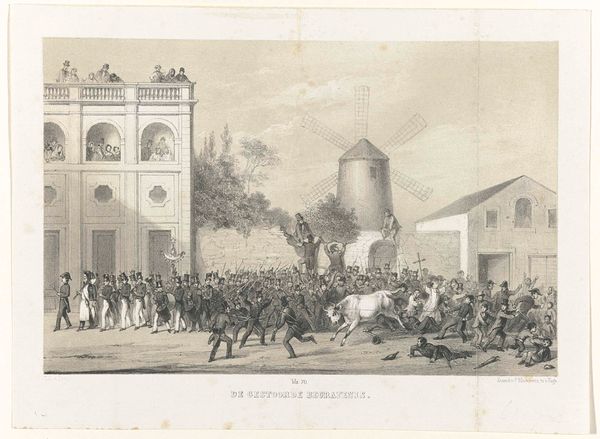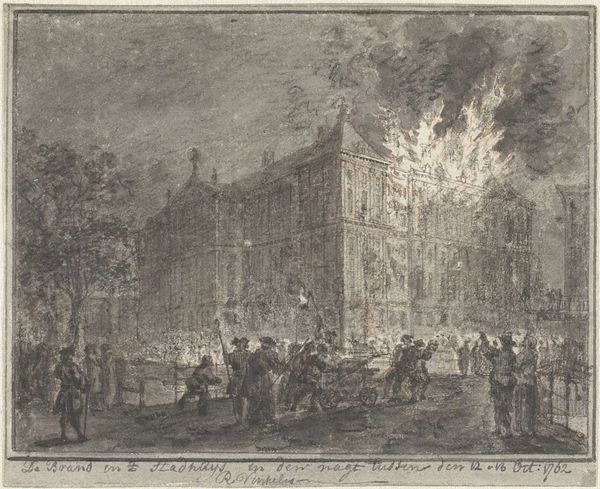
print, engraving
# print
#
old engraving style
#
archive photography
#
historical photography
#
romanticism
#
cityscape
#
history-painting
#
engraving
Dimensions: height 226 mm, width 293 mm
Copyright: Rijks Museum: Open Domain
Paulus Lauters made this print, "Attack on the Hôtel de Belle Vue in Brussels, 1830," using etching and engraving techniques. These are processes of subtraction – literally, the removal of material. Here, the artist would have first coated a metal plate with a waxy, acid-resistant substance, then scratched away lines to expose the metal. An acid bath would then bite into these exposed lines, creating grooves. Ink is then forced into these grooves, and the plate is pressed onto paper. The resulting image shows Lauters’ skillful modulation of line and tone. What's fascinating here is the inherent reproducibility of the printmaking process, which allowed for the widespread dissemination of this scene of revolutionary upheaval. The very act of making many impressions implies a democratic impulse, in line with the political context. This print thus challenges any strict hierarchy between "high" art and more utilitarian forms of visual communication. It's a potent reminder that the materials and methods of production profoundly shape an artwork's meaning and impact.
Comments
No comments
Be the first to comment and join the conversation on the ultimate creative platform.
